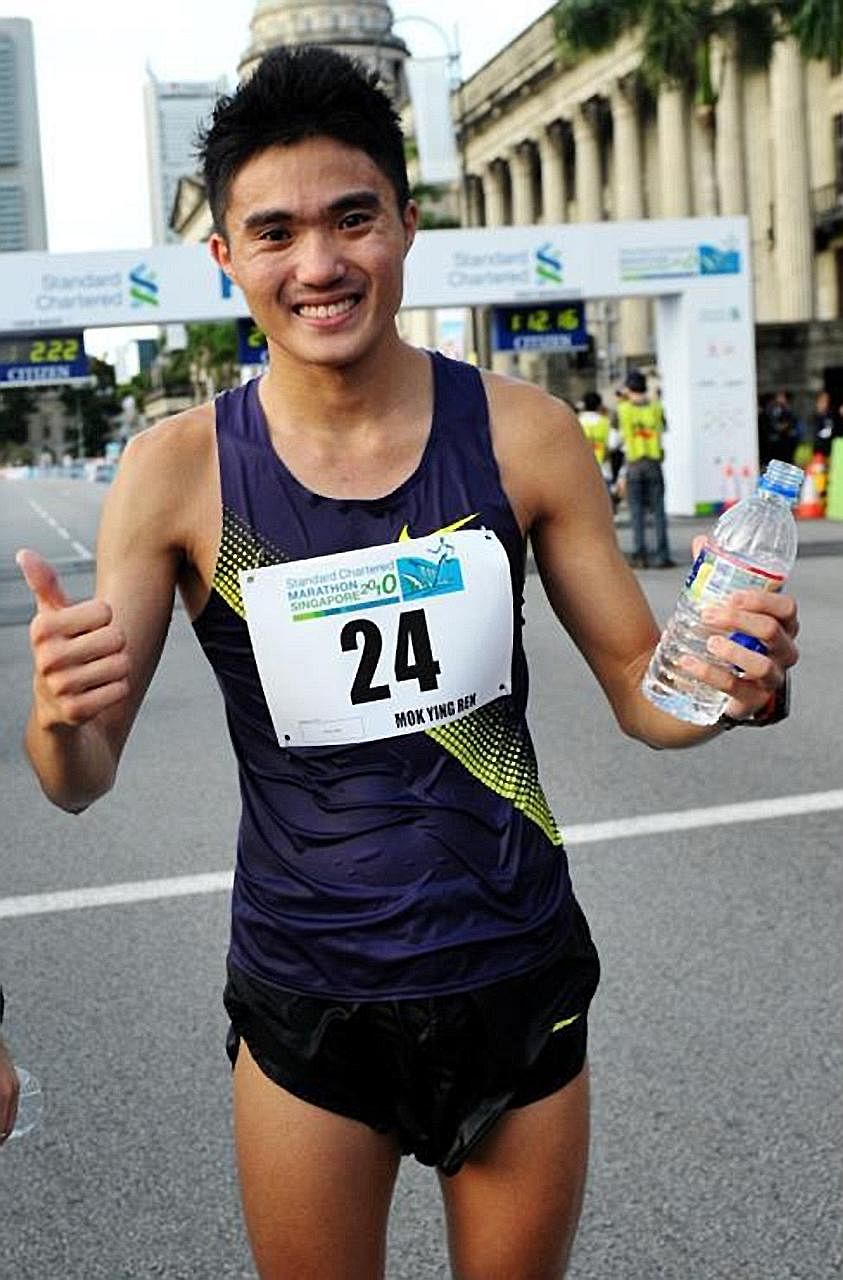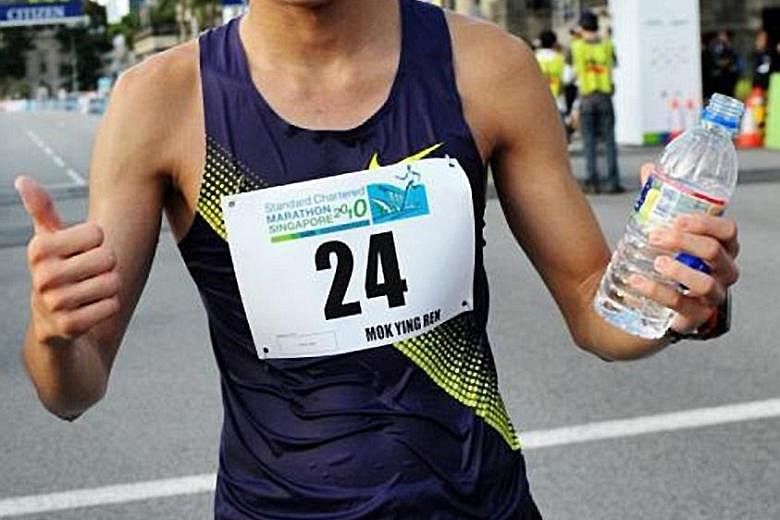Last week, we looked at some of the nutritional considerations for distance running. Today, let us take a closer look at long-distance runner Mok Ying Ren's typical food intake for a day and determine how one can convert the principles of basic sports nutrition into practice.
Mok's food diary indicates that he has a high carbohydrate-based diet containing a variety of high- and low-fibre food sources. Besides eating three main meals, he consumes additional carbohydrate-rich foods before and after a training session, so that his energy demands for his training sessions are met.
He also consumes protein-rich food such as meat, fish and milk, which provide him with adequate protein for his daily and training needs.
Meat and dark green vegetables also provide iron. Iron deficiency is a common nutritional problem among long-distance runners, especially among female athletes. This is due to increased iron loss through perspiration and gastrointestinal bleeding which commonly occurs during strenuous exercise.
Iron deficiency may increase weakness and cause fatigue, which in turn can affect performance. Red meat and liver are good sources of iron, and are easily absorbed by our body compared to iron from plant sources such as dark green vegetables, nuts, seeds and dried fruit. Consuming plant sources of iron with high vitamin C food such as citrus fruits, guava and capsicum can increase absorption.
When consuming a pre-training snack closer to the training period (about one hour before training), consuming low-fibre, low-fat foods is recommended, as they are easily digested and absorbed by the body.

During his training, Mok does not consume any fluids even though the session could last from one to two hours. However, it is still recommended to keep oneself hydrated by consuming fluids before, during and after the training session.
Water is generally adequate for rehydration after light or moderate physical activities that last less than 45 minutes. For longer or intense training sessions, sports drinks are recommended. These replace the electrolytes lost and have the added benefit of refuelling as they contain carbohydrates.
By having sports drinks and chocolate milk after his training, Mok ensures that he consumes fluids and electrolytes for rehydration, and carbohydrate and protein to promote replenishment of glycogen (the body's energy storage). This also helps to reduce the immunosuppressive effects of intense exercise.
Consuming adequate carbohydrate- and protein-containing food within 30 minutes after intense exercise, followed by a carbohydrate-rich meal later has been shown to accelerate glycogen replenishment.
Elite long-distance runners may undertake a strategy called carbohydrate loading a few days before the race to maximise their muscle glycogen stores. This strategy requires the athlete to decrease their training for one to three days before the competition, while being on a high-carbohydrate diet.
This extra glycogen has been shown to improve endurance by allowing athletes to exercise at their optimal pace for a longer time. It is meant for competition that lasts longer than 90 minutes at moderate to high intensity. A shorter duration of exercise is unlikely to bring a benefit as the body's usual glycogen stores would be sufficient.
-
Mok's food diary
-
6am: Breakfast
One bowl of high-fibre cereal, one glass of low-fat milk, half cup of yogurt, one cup of coffee with milk. -
Noon: Lunch
One bowl of white rice, 11/2 cup of vegetables, one palm-sized piece of steamed fish. -
4pm: Pre-run snack
One slice of fruit, one snack bar. -
5pm: Training
No food or fluid intake. -
6 or 7pm: Post-training
Half to one litre of non-carbonated sports drink, one glass of low-fat chocolate milk. -
8 or 9pm: Dinner
One bowl of brown rice, one cup of vegetables, one palm- sized piece of meat/fish (steamed/stir fried), one slice of fruit.
Reducing training during the carbohydrate-loading period is important as failing to rest can compromise its effectiveness. It might be necessary to vary the types of carbohydrates consumed during this period to ensure adequate intake.
Developing a proper meal plan with the help of a carbohydrate counter or sports dietitian would be beneficial, as eating insufficient carbohydrates or too many high-fat foods could hinder carbohydrate loading and can have detrimental effects.
• Kejendran Mangaikarasu is a senior dietitian at the dietetics department at the National University Hospital. He is part of a multi-disciplinary team at the NUH Sports Centre and has an interest in critical care and sports nutrition.


